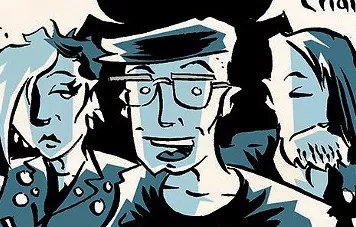
Art by Karl Christian Krumpholz

Audio By Carbonatix
The first time I got a professional writing assignment, I gave up before it was even published. And it was at Westword.
The year was 2002, and I had spent my youth writing and doing artwork for zines and underground papers like Denver’s notoriously smartass rag the Hooligan. I’d never actually been edited by anyone. So when Westword‘s music editor at the time, Laura Bond, read one of those zines and offered me an assignment to write a record review – of Jonathan Richman’s Her Mystery Not of High Heels and Eye Shadow – I was hesitant but hopeful.
For two days, I agonized over every word of that review before emailing it to Laura. When she promptly sent me a few suggestions for edits, I flew off the handle. I told her that if being a pro writer meant having to have my words torn apart and put back together every day, I would rather go back to writing zines. I told her not to print my review in any form, and I quit before I even began.
Thankfully, Laura talked me off the ledge. And guess what? I became an editor myself eventually, and I did my best to pay it forward.
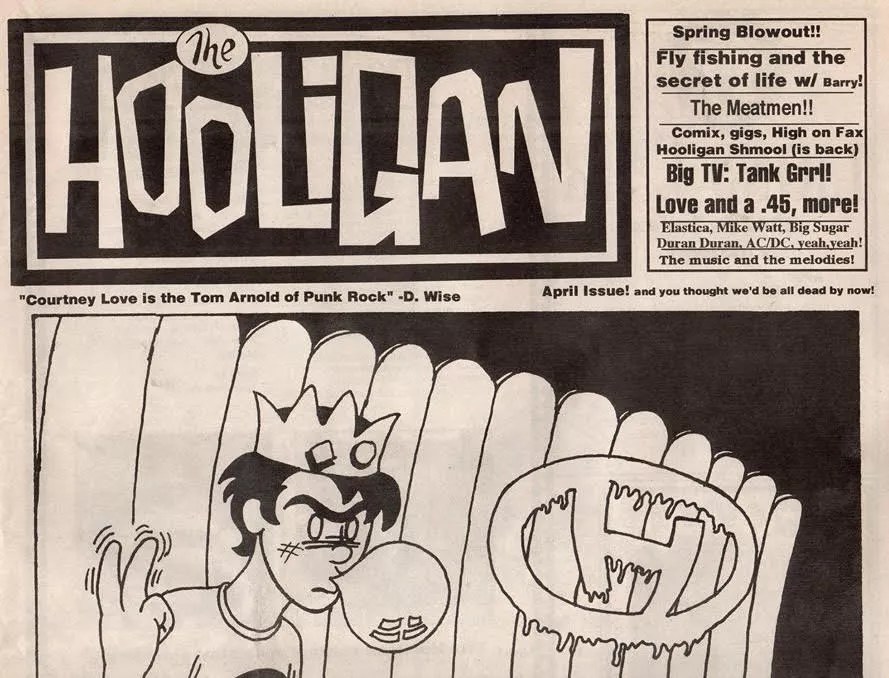
Jason Heller’s cover art for the April 1995 issue of the Hooligan.
Jason Heller
After 22 years of freelancing on and off for Westword, I became a staff writer in October 2024. Along the way, I’ve also written for the New Yorker, the Atlantic, Rolling Stone, Pitchfork and NPR. I’ve had several books published, including the one closest to my heart, Strange Stars: David Bowie, Pop Music and the Decade Sci-Fi Exploded. I’ve won a Hugo Award and a Colorado Press Association Award. However, without Laura Bond; her successor as music editor, Dave Herrera; and my boss, Patty Calhoun, I might still be doing zines. Which, granted, would have been just fine. But I probably wouldn’t have produced the body of work that I have so far, for better or worse.
Speaking of better: Below are five out of the hundreds of stories I’ve written for Westword over the past 22 years. I like this handful a lot, not because of the quality of my writing – that’s not for me to judge – but because the people I wrote about were so creative, compelling and essential to the atomic structure of Denver. Some of those people are still with us, doing cool things. Some have faded into the woodwork. Some are no longer living. I am privileged to have been able to tell their stories. And I look forward, Westword willing, to telling as many more as I can get away with.
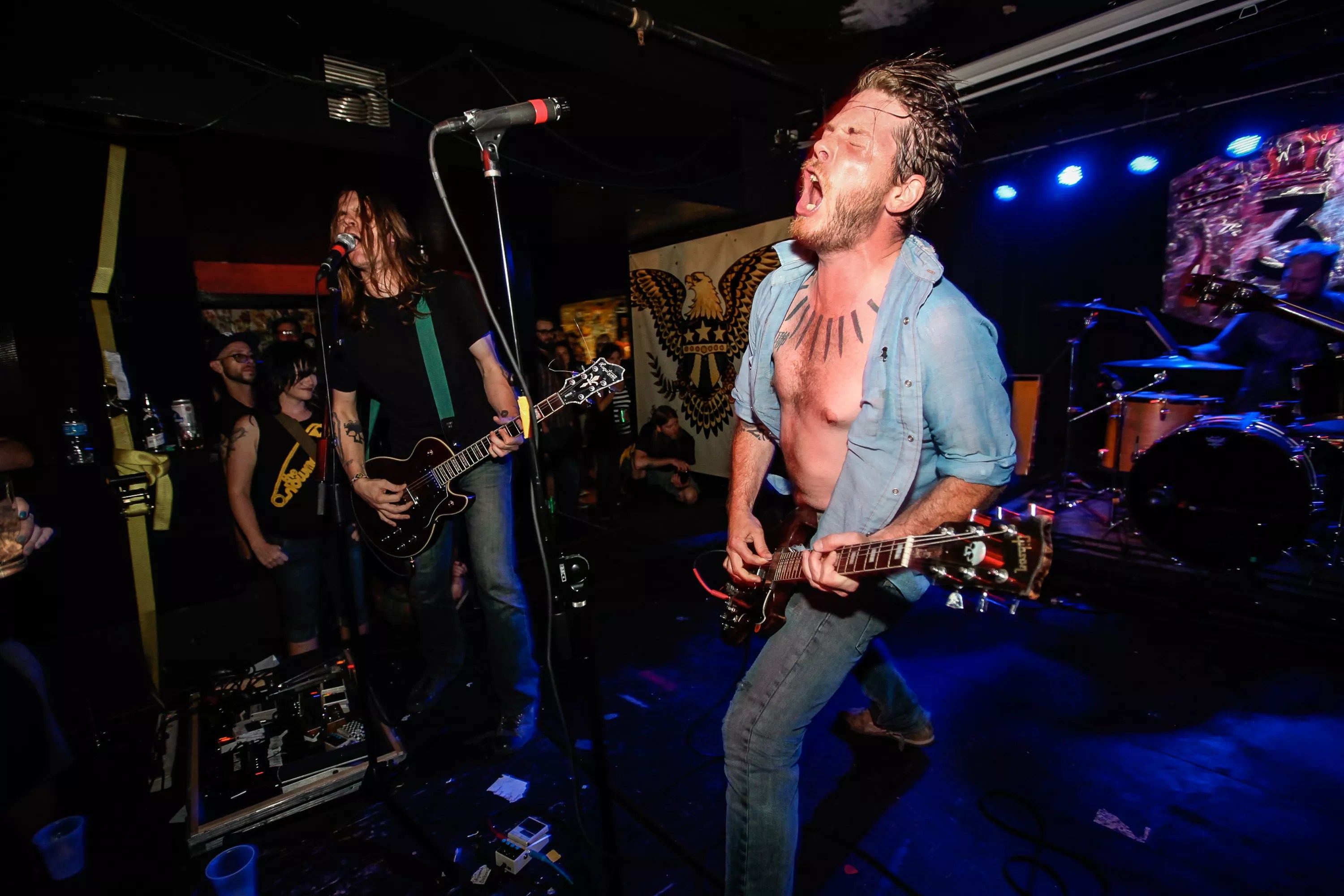
Gared O’Donnell, leader of the legendary Planes Mistaken for Stars, died of cancer in 2021.
Aaron Thackeray
“California Screamin'”: Planes Mistaken for Stars, 2004
I went on a West Coast tour with the legendary, Denver-by-way-of-Peoria, post-hardcore band Planes Mistaken for Stars in 2004. I lived to tell the tale. Barely. It was a blast to be stuck in a van with these four unhinged, profane and unbelievably talented dudes for a few days. Plus, I got to see them on stage night after night, a veritable parade of ferocious, hellacious catharsis. I’m glad I got to document them during their first blush of international infamy and cult acclaim – and before we started to lose them. Guitarist Matt Bellinger died of suicide in 2017, and singer-guitarist Gared O’Donnell died of cancer in 2021. Planes’ devastating, posthumous album, Do You Still Love Me?, came out in 2024. That title? It’s a question that answers itself.
“Denver Cartoonists Are Inking Big”: Denver Drink and Draw, 2010
Denver has long been an incubator for great comic-book talent, and many of those artists who went on to awesome things got their start at Denver Drink and Draw. For a few years, it was the epicenter of the local scene, a regular event where artists came together, got a little sloshed, jammed on each others’ comics and dreamed big. Among the artists featured in the article is Noah Van Sciver, who has since become a major figure in alternative comics; Leila del Duca, who went on to draw Superman and Wonder Woman for DC Comics; and Hamza Pecenkovic, whose gorgeous new comic, The Crystal Compass, was published in 2024. Back in 2010, though, they were all still kids with tightly clenched pencils and wide eyes aimed at the future.
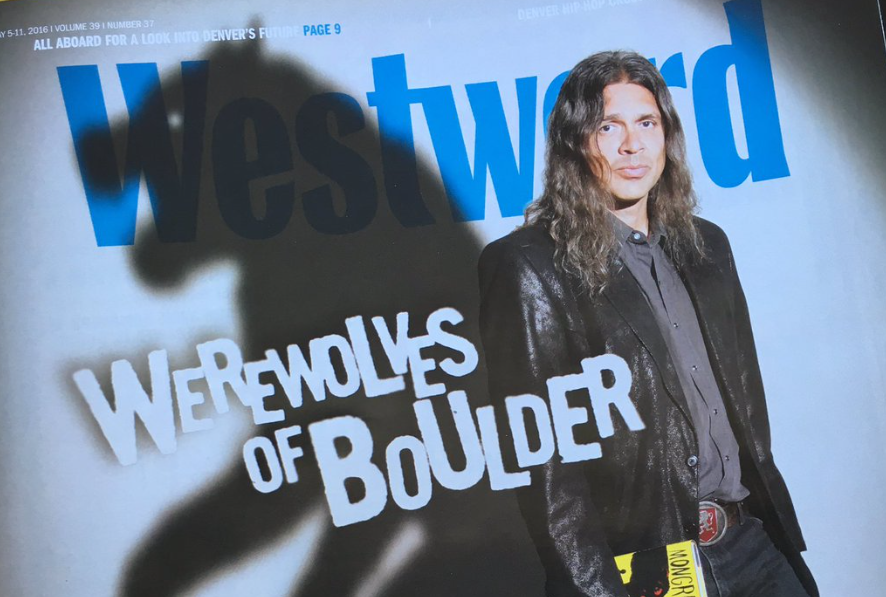
Stephen Graham Jones’s life story is just as compelling as his horror novels.
Anthony Camera
“With Mongrels, This Is Stephen Graham Jones’s Time to Howl”: Stephen Graham Jones, 2016
Sometimes you have to work hard to get a story out of someone, and other times, all you have to do is plunk down a recorder and let them do the rest. University of Colorado professor and horror author Stephen Graham Jones basically wrote this article himself, strictly by dictation, when I interviewed him in 2016. At the time, his first novel with a big New York publisher, Mongrels, had just dropped. Since then he’s won tons of high-profile horror and fantasy awards, become a New York Times bestseller and even collaborated with Stephen King on an audiobook. As it turns out, though, Jones’s own personal backstory – as he recounts in my article – is twice as funny, weird and emotional as anything he’s ever written. And that’s saying something.
“The Satanic Temple Colorado Puts a Devilish Spin on the Holidays”: The Satanic Temple Colorado, 2020
The Satanic Temple is a relatively new thing, having formed as a nationwide network of congregations in 2012. Colorado’s chapter, the Satanic Temple Colorado, convened in 2017, taking pains to make sure people knew that this wasn’t your father’s Satanism. Queer-positive, social justice-centric and unapologetically activist, the Satanic Temple Colorado made a great case in my article for why the world needs Satan now more than ever. In 2024, though, schisms appeared throughout the Satanic Temple across the country, and Colorado’s congregation severed ties with the national headquarters in Salem, Massachusetts (because of course that’s where it is). Newly independent and renamed Satanic Colorado, the church is striking forward in its most progressively diabolical way.
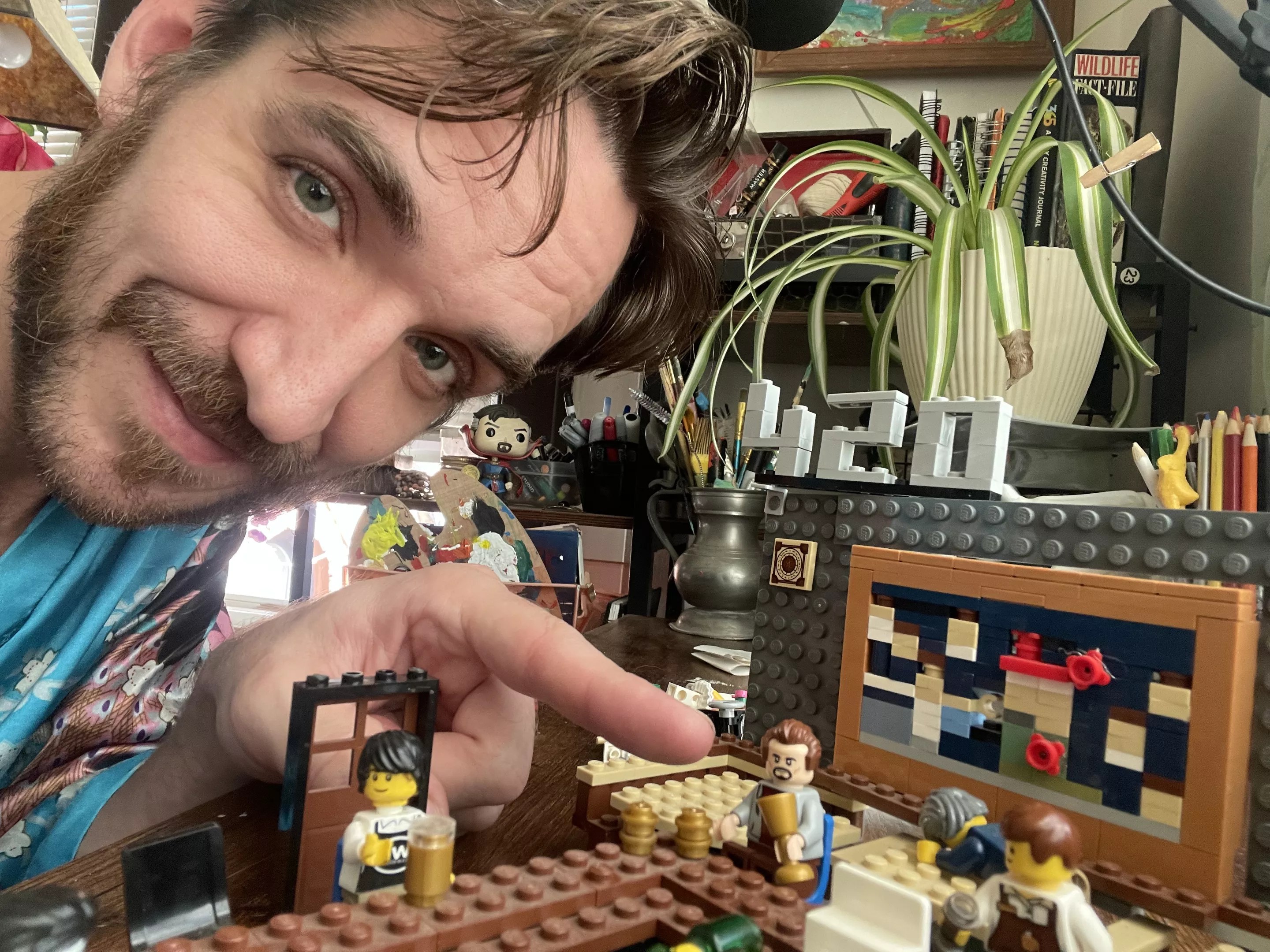
Zachary Lamb points at the LEGO version of himself in his replica of Nob Hill Inn.
Zachary Lamb
“A Nob Hill Inn Patron Immortalized the Bar With LEGO Bricks”: Zachary Lamb, 2024
I’ve only written a couple dozen pieces for Westword since I returned to the paper as a staff writer. I am proudest of this one: Zachary Lamb – a longtime regular at Denver’s quintessential dive bar, Nob Hill Inn – decided to re-create the interior of the joint using nothing but LEGO. Even better, he used bricks that Nob Hill’s late bartender, Bart Case, gave him before he died in 2023. Bart is even represented in the LEGO diorama by a ghostly, long-haired severed head that’s perched on top of the jukebox, like a gruesome guardian angel watching over his tipsy wards. It’s a weird little saga, and I got to wax a bit poetic. But mostly I loved sharing Lamb’s story because it’s heartbreaking and absurd and creative and romantic and ultimately undertaken with zero fucks given. In other words, it’s exactly what Denver means to me – and at this point, 22 years into my Westword exit interview, I’m sure it always will.